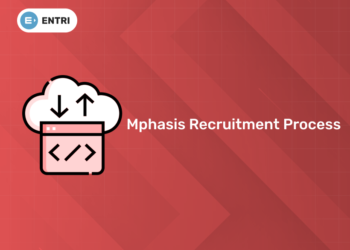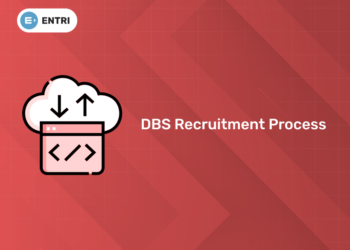Table of Contents
According to Common European Framework of Reference for Languages (CEFR), German B1 level indicates an intermediate level of language proficiency. Once you pass the B1 level, you are considered as an independent speaker. You will able to hold a conversation on familiar topics and areas of personal interest. With B1 level certification, you can apply to a German university provided you are applying for the course in English taught program. As this is an intermediate level, you have to improve your grammar skills to crack the exam. Let us have a look at German B1 grammar topics.
What is German B1?
German B1 is the third level in the six level language proficiency system. Those who attain the B1 level will be able to :
- Indulge in communication that require a simple and direct exchange of information on familiar and routine matters.
- Describe events, dreams, hopes etc
- Give opinion and explain plans
- Handle situations whilst travelling in German speaking areas
Click here to join the Entri online German language course! Watch demo classes here!
German B1 Grammar Topics
1: How do you say "Good Morning" in German?
B1 level German requires a solid understanding of German grammar rules. You should be able to use these rules appropriately in conversation and writing. Some of the key grammar topics in B1 level are:
Tenses:
Use present, past and Futur I tenses, along with past perfect accurately. Futur I is formed using the auxiliary verb “werden” followed by the infinitive form of the main verb. “werden” is conjugated according to the subject of the sentence.
Example: Ich werde morgen arbeiten.
Verbs:
In B1 level, you learn clauses with ”zu”. It is used to indicate purpose, direction or movement towards a place, person, or object. You can also make infinitive and subordinate clauses with ”zu”.
Example:
Ich gebe das Buch zu meiner Freundin
Cases:
The nominative, accusative, dative and genitive are the four cases in German. These cases indicate the following:
- Nominative – doer of the action
- Accusative – direct object
- Dative – indirect object
- Genitive – possessive relationship between two consecutive nouns
Example:
Der Mann spielt Tennis
Wen sehe ich?
Preposition:
In German, prepositions are used with verbs and adjectives. These prepositions behave like normal prepositions. Verbs with prepositions are used to express specific emotions.
Example:
achten auf (+dat.),
Sie ist sehr stolz auf ihre Tochter
Passive Voice:
Learn to form and use the passive voice correctly. It is formed using werden and the past participle of the verb.
Example: Das Buch wurde von mir gelesen.
Modal Verbs:
You should be able to use modal verbs such as können (can), müssen (must), wollen (want to) and sollen (should) to express ability, obligation, necessity and possibility. Learn the rules for conjugating modal verbs.
Example: Dafür muss er viel über Autos wissen.
Pronouns:
The demonstrative pronouns in German are “Dies-” and “jen-“, “derjenige” and “Derselbe”.
Example: Diesen Sommer fahre ich nicht weg.
Reflexive pronouns, demonstrative pronouns, indefinite pronouns
Adverbs:
Clause-connecting adverbials, known as Nebensatzanschlüsse in German. It is used to connect two main clauses together. It is typically placed at the beginning of the second main clause and seperated by a comma.
Examples: Deshalb, Außerdem, Trotzdem, Schließlich
Prepositional & Pronominal Adverbs are of the form ‘Wo + preposition’ and ‘Da + preposition’. The former is used when asking questions for clarification or to introduce a subordinate clause. The latter acts as a pronoun.
Examples: Wofür ist das?, Ich habe ihm davon erzählt.
Conjunctive adverbs like darum, deshalb, daher, and deswegen combine an independent clause describing a reason with an independent clause describing a consequence.
Example: Ich mag Eis, deshalb esse ich jeden Tag zwei Eis.
Nouns
N-declension, also known as the “weak declension” is a type of declension that is used for masculine nouns in German.
Example:
When “Junge” is declined, it changes as follows:
- Nominative: der Junge (the boy)
- Accusative: den Jungen (the boy)
- Dative: dem Jungen (to the boy)
- Genitive: des Jungen (of the boy)
Words becoming nouns: In German, verbs can be transformed into nouns by adding the definite article “das“. They are similar to the gerund form in English.
Example:
das Einkaufen
Participles
In German, we can use the present or past participle as an adjective or an adverb to show two actions in one sentence. This helps us to avoid the second sentence. Learn the situations and rules of using the participle forms as an adjective or adverb.
Example:
Ein kaputtes Auto hat den Stau verursacht.
Indirect Speech with the subjunctive “sei”
In German, the subjunctive “sei” is used to change direct speech into indirect speech. It is done by removing the final “-n” from the infinitive.
Example:
Er sagt, er wolle uns helfen.
Improve your German B1 grammar skills with the help of a German course designed by experts using the German A1 level syllabus from Entri App. The comprehensive German language course prepares you to read, write, and converse in German. It covers all the essential parts of the German language.
You get access to live and recorded classes with experienced and certified faculties. You also get Goethe exam assistance and pre Goethe mock test. We also provide personalized feedback and in-app assistance which helps students to identify their strengths and weaknesses.
The salient features of our German course are:
- Live interactive classes
- Recorded classes after live sessions
- PDF notes and assignments
- Local language tutor
- Goethe Test assistance and mock test
| Related Articles | |
| Top German A1 Grammar Topics Top German A2 Grammar Topics | |
| German B2 Exam Pattern Top German B2 Grammar Topics | |











